Introduction
Compare ClickFunnels vs Shopify to discover which platform is best suited for your online business. This detailed guide will help you understand the strengths and features of ClickFunnels for creating effective sales funnels, alongside Shopify’s robust e-commerce capabilities. Choosing the right tools is crucial for building a successful online business, and if you’re weighing the options between ClickFunnels and Shopify, you’re likely assessing which platform aligns best with your specific needs. While both are powerful, they serve distinct purposes and offer different functionalities. In this guide, we’ll dive into a thorough comparison of ClickFunnels and Shopify to clarify their unique strengths and help you determine which is the ideal choice for achieving your business goals.
Table of Contents
Understanding ClickFunnels
ClickFunnels is a popular tool designed primarily for creating sales funnels. Sales funnels are marketing strategies that guide potential customers through a series of steps, from initial interest to final purchase.

Key Features of ClickFunnels
- Sales Funnel Builder: Create and customize sales funnels with ease. ClickFunnels offers a variety of templates for different types of funnels, such as lead generation and product launches.
- Landing Pages: Design high-converting landing pages that can capture leads and drive sales.
- Email Automation: Automate email marketing campaigns to nurture leads and boost conversions.
- A/B Testing: Test different versions of your funnels to see which performs best and optimize accordingly.
- Membership Sites: Create and manage membership areas for exclusive content.
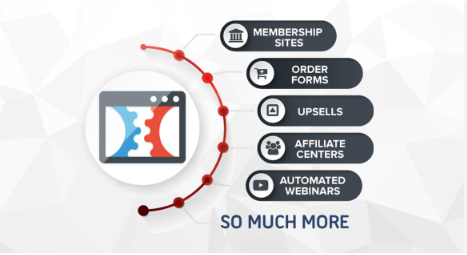
Understanding Shopify
Shopify is an e-commerce platform designed to help you create and manage your online store. It’s known for its robust features and ease of use, making it a go-to choice for businesses focused on selling products online.
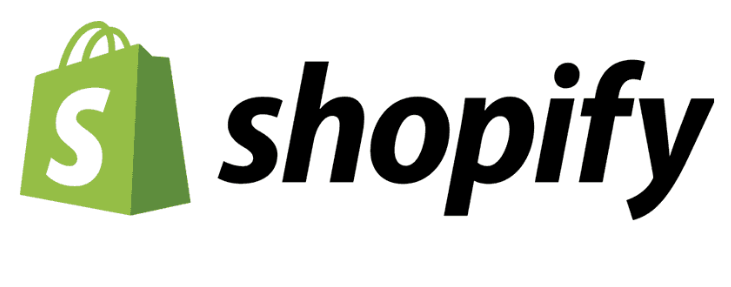
Key Features of Shopify
- Storefront Design: Choose from a wide range of professional themes and customize your store to match your brand.
- Product Management: Easily add, organize, and manage your products with detailed inventory tracking.
- Payment Gateways: Accept payments from multiple channels, including credit cards and digital wallets.
- Shipping Integration: Set up shipping options and manage fulfillment with integrated solutions.
- Analytics and Reporting: Access comprehensive analytics to track your store’s performance and make data-driven decisions.
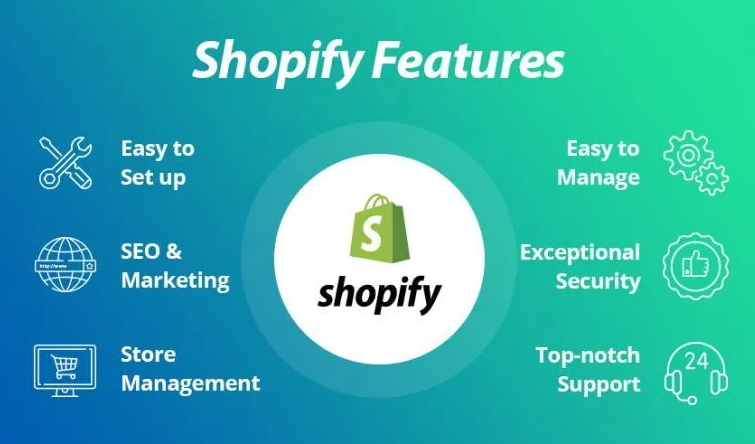
ClickFunnels vs Shopify: Feature Comparison
When comparing ClickFunnels and Shopify, it’s important to look at how each platform aligns with your business goals. Here’s a breakdown of key features and how they stack up against each other.
Purpose and Functionality
- ClickFunnels: Focuses on building effective sales funnels. If your primary goal is to generate leads and drive sales through a structured marketing process, ClickFunnels excels. It offers tools specifically designed for funnel creation, lead capture, and conversion optimization.
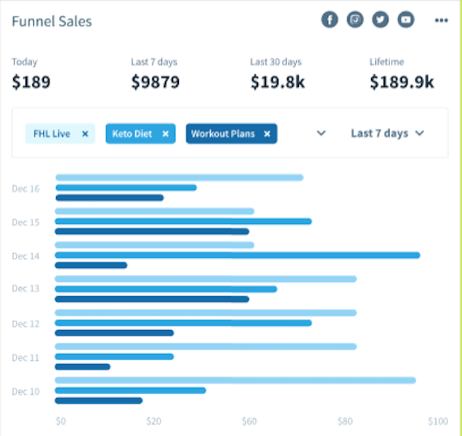
- Shopify: Specializes in e-commerce. If your main objective is to set up an online store to sell products, Shopify is the better choice. It provides a comprehensive suite of e-commerce features, including inventory management, payment processing, and shipping logistics.

Ease of Use
- ClickFunnels: Known for its user-friendly drag-and-drop editor, making it accessible for users with little technical expertise. However, mastering advanced features may take some time.
- Shopify: Also user-friendly with an intuitive interface. Setting up your store is straightforward, and Shopify’s extensive support resources make it easy to get started.
Customization and Design
- ClickFunnels: Offers a range of customizable templates for funnels and landing pages. You can tweak designs to fit your brand, but the primary focus is on functionality rather than extensive design flexibility.
- Shopify: Provides a variety of themes and customization options for storefronts. You can modify themes to suit your brand’s aesthetics and add features through apps from the Shopify App Store.
Pricing
- ClickFunnels: Pricing starts at $81 per month for the Startup Plan and goes up to $248 per month for the Pro Plan, which includes advanced features such as Actionetics (email marketing) and Backpack (affiliate management).

- Shopify: Pricing starts at $19 per month for the Basic plan and ranges up to $299 per month for the Advanced plan. Each tier offers progressively more features and capabilities.
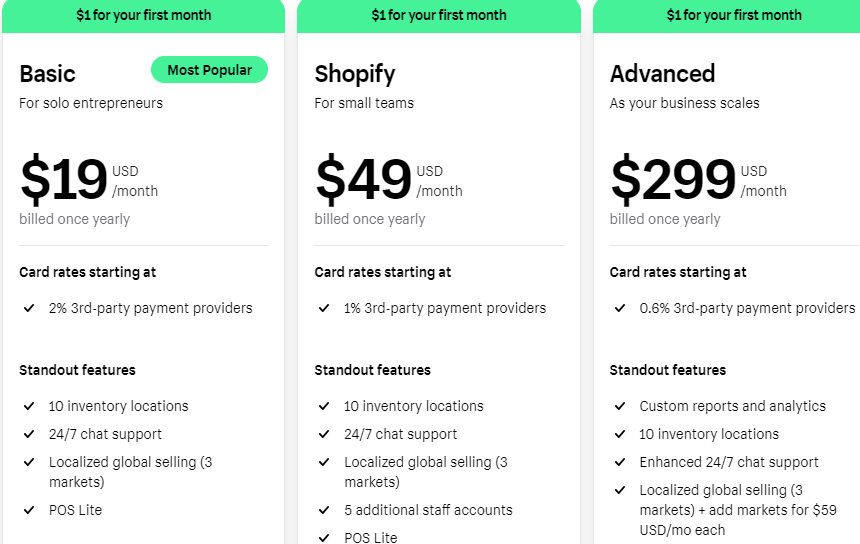
Integrations and Add-ons
- ClickFunnels: Integrates with various third-party tools and services, including email marketing platforms and CRM systems. However, it may require additional setup for some integrations.
- Shopify: Has a robust App Store with thousands of apps and integrations for enhancing your store’s functionality, including marketing tools, analytics, and customer service solutions.
Which Platform is Right for You?
Choosing between ClickFunnels and Shopify depends largely on your business model and goals. Here’s a quick guide to help you decide:
- Choose ClickFunnels if:
- Your primary goal is to create effective sales funnels for lead generation and sales conversion.
- You need advanced features for email marketing automation and A/B testing.
- Your focus is on optimizing your sales process rather than managing an online store.
- Choose Shopify if:
- You want to build and manage an online store with comprehensive e-commerce features.
- Your focus is on selling products and handling transactions and shipping.
- You need a user-friendly platform with extensive design and functionality options for an online store.
Real-World Use Cases
ClickFunnels Use Case
A digital marketing agency might use ClickFunnels to create a series of targeted sales funnels for different client campaigns. They could design funnels to capture leads, promote webinars, and convert leads into paying customers through highly optimized landing pages and email sequences.
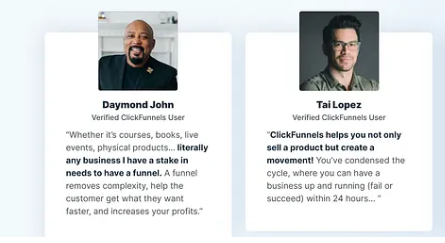
Shopify Use Case
An apparel brand might choose Shopify to set up an online store to showcase and sell their clothing line. They would benefit from Shopify’s inventory management, payment processing, and shipping integrations to efficiently run their e-commerce operations.
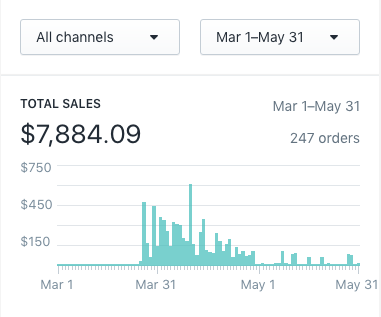
Conclusion
!In summary, ClickFunnels and Shopify cater to different needs:
- ClickFunnels is ideal for creating high-converting sales funnels and automating marketing processes. It’s best for businesses focused on lead generation and sales optimization.
- Shopify excels in e-commerce, offering robust features for setting up and managing an online store. It’s perfect for businesses looking to sell products online efficiently.
Choose ClickFunnels if your goal is to streamline sales processes with effective funnels. Opt for Shopify if you need a comprehensive solution for running an online store. Assess your business goals and requirements to select the platform that aligns with your needs.





